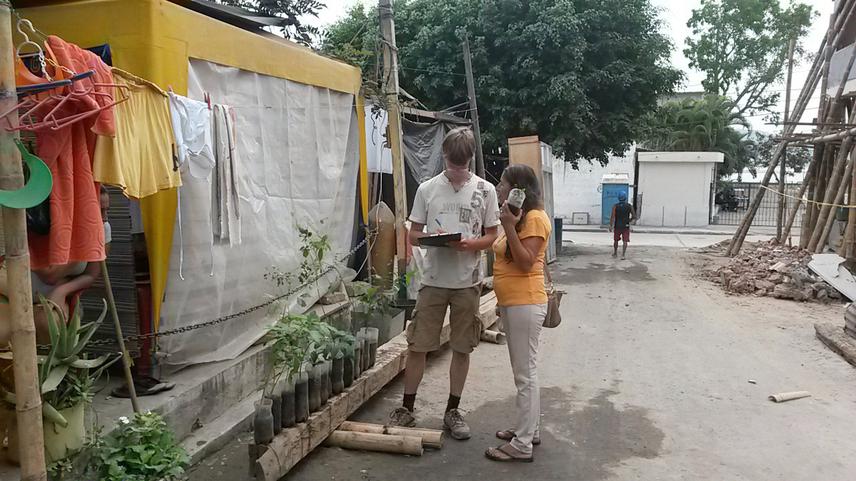Clay Plager-Unger
Other projects
Restore endangered Dry Tropical Forest through revegetation of native tree species. Education workshops engage local communities in protecting this fragile ecosystem.

Bahia Tree Donations.
Ecuador’s Dry Tropical Forest is one of the most threatened habitats in the world. It is estimated that less than 1% of the original dry-tropical coverage remains. It harbours extraordinarily high levels of unique species and biological diversity. In some areas more than 270 bird species have been counted. 77 of these bird species are endemic to this eco-region and 22 of those are considered to be at risk of extinction.
Planet Drum (PD) addresses this issue through environmental education and actively revegetating damaged forest ecosystems. Revegetation is PD’s bioregional version of reforestation, which emphasizes ecosystem restoration through the non-commercial planting of exclusively native species. This promotes soil stabilization as well as the creation of habitat for other plants and animals. Through years of producing tens of thousands of trees and hosting dozens of educational workshops, the PD greenhouse has become established as a regional icon of environmental restoration and continues to produce trees for revegetation at sites throughout the Manabí province. The techniques that have been developed during a decade of operation will be the foundation for implementing new greenhouses, which will bring the revegetation work directly to locations in the communities where interest and need is the greatest.
Regular workshops, presentations, classes, and open houses provide the opportunity to exchange ideas with locals as well as teach and promote bioregional activities which focus on aligning life's daily activities with the capacity of the natural resources around them. Training locals in bioregional practices increases their ability to address the ecological issues that threaten their livelihoods. New educational materials and workshop programs are needed in order to continue to raise environmental awareness and further increase community collaboration and participation in ecosystem restoration.
Additionally, the pressures of traditional economic development in Bahía de Caráquez are intensifying and there is an immediate threat of losing its identity as an Ecological City. The Project strives to support this initiative by organizing and supporting urban ecological initiatives such as urban forestry, gardening, composting, water recycling, waste reutilization, green energy, and transportation. Looking ahead, the objective is to build upon the experiences gained during sixteen years of field work in order to increase the depth and scope of the impact of the Project.